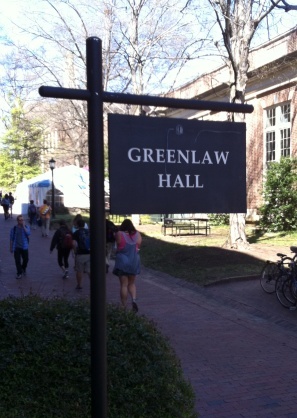
A long time ago in a galaxy far, far away, I was a sophomore journalism student at the University of North Carolina at Chapel Hill, home of stratospherically good basketball and the country’s finest j-school.
My newswriting class was taught by legendary newspaperman Professor James H. Shumaker. He was the inspiration for the comic strip Shoe, created by his former student Pulitzer Prize-winning editorial cartoonist Jeff MacNelly.
I remember one assignment. For me, a lesson in objective writing.
In hindsight also a watershed moment. If I had been paying closer attention, the truth gleaned from that episode might have spared me years of angst.
I would have walked—no, I would have fled to Greenlaw Hall and sought asylum in the English department. Or at least declared a double major.
The assignment was to use a police report to write a news blurb about a fatal car accident. I completed the task quickly with masterful use of the language:
Two died in a tragic and fiery crash as their car careened over a treacherous mountain pass, plummeting the unsuspecting passengers to their grisly deaths. The horrific accident occurred in the dark of night around 11 p.m., Tuesday, on a dangerous stretch of route 10, just north of Waterton. Police are not releasing the names of the unfortunate victims until their bewildered families can be notified.
Proudly I carried my paper, we still used paper back then, to the front of the class and presented it to Professor Shumaker.
He read it and with a blank face said, “This is not objective. Do it again.”
“Not objective?” I said.
“Just tell what happened without the flourishes,” he said. “You don’t need ‘tragic,’ ‘fiery,’ and all that. Just report what happened.”
“But that would be… boring!” I said as I dragged back to my seat, tears welling. “And it was tragic.”
Yes, it was.
I can’t be sure, but I think Shu rolled his eyes in a polite Southern gentlemanly sort of way and said nothing more to me. For the rest of the semester.
I’m not a news reporter, but I believe a more objective story would have gone something like this:
Two people died in a car accident around 11 p.m., Tuesday. Their car left the road on route 10 north of Waterton, went over the mountain pass and caught fire. Police are notifying relatives before releasing names.
Period. End of story. Just the facts, ma’am.

Now class, mine was a simplistic example. Real life is not always so clear.
Next time you’re ingesting the news du jour, where are the facts? Are they dripping with dazzle? Sizzling with sensationalism? Muddied with interpretation? Then that news is not completely objective, is it?
Nothing against flourishes or interpretation. As long as you recognize it for what it is and don’t call it objective.
Call it creative nonfiction or opinion editorial or commentary and analysis or talk radio or personal blogging or something.
Professor Shumaker, God rest your soul. Now I understand why you wanted just the facts in the news. So do I, sir. So do I.
Getting wisdom is the wisest thing you can do! And whatever else you do, develop good judgment. Proverbs 4:7 NLT
The most fundamental change is that more of the responsibility for knowing what is true and what is not now rests with each of us as individuals. The notion that a network of social gatekeepers will tell us that things have been established or proven is breaking down. Citizens have more voice, but those who would manipulate the public for political gain or profit—be it corporations or the government—have more direct access to the public as well. (“Blur: How to Know What’s True in the Age of Information Overload,” Bill Kovach and Tom Rosenstiel, 2010, p. 7)